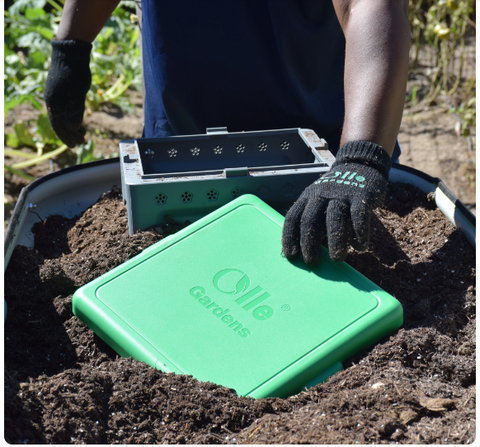The Do's and Don'ts of Compost Worm Bin Maintenance
Composting with worms, also known as vermicomposting, is a sustainable and efficient way to turn kitchen scraps into nutrient-rich compost for your plants. However, maintaining a healthy compost worm bin requires a bit of know-how to ensure that your little wriggly workforce stays happy and productive. In this article, we'll explore the do's and don'ts of compost worm bin maintenance to help you create and sustain a thriving composting ecosystem.
The Do's:
Choose the Right Worms:
- When it comes to composting, not all worms are made equal. Red wigglers (Eisenia fetida) are the preferred species for vermicomposting due to their voracious appetite and ability to thrive in confined spaces.
Provide Adequate Bedding:
- Worms need a comfortable and moist environment to thrive. Use a mix of shredded newspaper, cardboard, and coconut coir as bedding. Keep it moist, but not waterlogged.
Balance the Diet:
- Worms are not picky eaters, but it's essential to provide a balanced diet. Offer a mix of kitchen scraps such as fruit and vegetable peels, coffee grounds, and eggshells. Avoid citrus, onions, and garlic, as they can be too acidic for the worms.
Chop Food into Small Pieces:
- To expedite the composting process, chop your kitchen scraps into smaller pieces. This increases the surface area for the worms to break down the material and prevents large chunks from taking too long to decompose.
Maintain the Right Moisture Level:
- Worms breathe through their skin, so it's crucial to keep the bedding moist. However, avoid overwatering, as this can lead to anaerobic conditions that are harmful to the worms.
Harvest Compost Regularly:
- Harvesting compost regularly prevents the bin from becoming overcrowded and ensures that you have a steady supply of nutrient-rich vermicompost for your plants.
The Don'ts:
Don't Overfeed:
- Overfeeding is a common mistake in vermicomposting. Worms can only consume a certain amount of food each day. Adding too much food can lead to unpleasant odors and attract pests.
Avoid Dairy and Meat Products:
- Worms are not equipped to break down dairy and meat products efficiently. These items can create unpleasant smells and attract unwanted pests. Stick to plant-based kitchen scraps for a healthier bin.
Say No to Citrus, Onions, and Garlic:
- Citrus fruits, onions, and garlic are too acidic for worms. Avoid adding these to your worm bin as they can disrupt the pH balance of the bedding and harm the worms.
Steer Clear of Diseased Plants:
- Do not add diseased or pest-infested plant material to your worm bin. The bin may not reach temperatures high enough to kill pathogens, and you risk spreading diseases to your garden when using the compost.
Don't Neglect Aeration:
- Adequate aeration is crucial for a healthy composting environment. Avoid compacting the bedding, and occasionally turn it to introduce fresh air. This prevents the formation of anaerobic pockets that can be harmful to worms.
Conclusion:
Maintaining a compost worm bin can be a rewarding and eco-friendly way to manage kitchen waste. By following these do's and don'ts, you'll be well on your way to creating a healthy and thriving vermicomposting ecosystem. Remember to observe your worm bin regularly, make adjustments as needed, and enjoy the benefits of nutrient-rich compost for your plants and garden. Happy composting!


